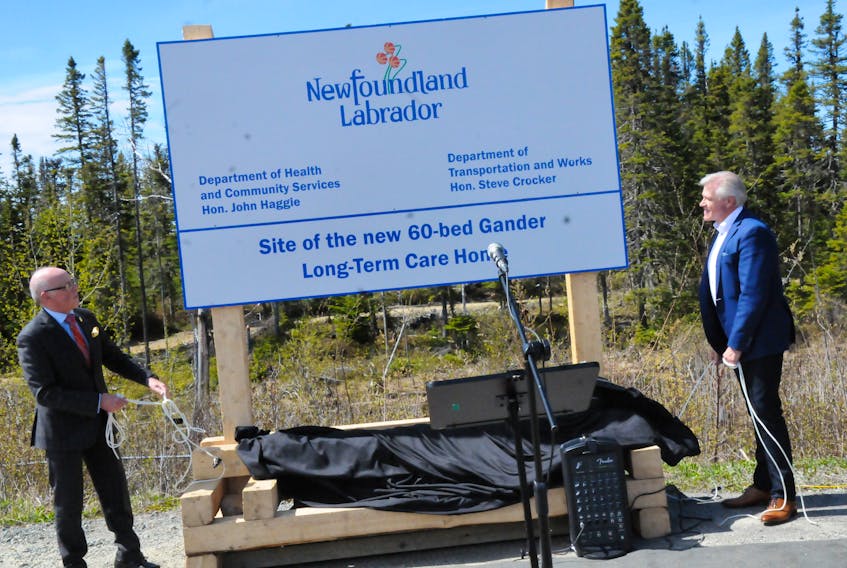In recent days, we’ve seen our premier posing for the cameras as he announces and re-announces plans for the construction of new long-term care facilities. We all realize there is definitely a need for more long-term care beds, and with an aging population, this need is likely to grow.
However, while bricks and mortar are part of the solution, other issues really need to be considered as part of the bigger conversation on long-term care.
First of all, our government should be reflecting on one of their 2015 campaign promises as it relates to home assessments and other measures to allow seniors to stay in their own homes as long as possible. I think it’s fair to say that this would be the preferred option for the vast majority of our seniors and would be much less taxing on our government’s coffers then that of costly long-term care beds.
Unfortunately, as opposed to focusing on keeping seniors home with their loved ones, we’ve actually seen government initiate measures counter-productive to achieving that goal, including reducing home-care hours and increasing client costs, increasing costs to seniors for home-care supplies, and cancelling coverage for seniors’ over-the-counter medications, to name a few.
Government really needs to rethink these decisions!
Another important consideration in this discussion relates to the standards of care required for those admitted to long-term care facilities. It is absolutely unacceptable to place our seniors in these facilities without ensuring they are actually receiving the care they require.
This issue has recently been brought to the forefront by a group known as Advocates for Senior Citizen’s Rights, who are calling on our government to craft new legislation which they have named Lillian’s Law. I recently had the pleasure of meeting with this group and basically they are looking for legislation that would ensure that seniors in long-term care, particularly those suffering from dementia, Alzheimer’s and other cognitive diseases, are provided with an appropriate patient/staff ratio to ensure that required care is provided to patients in a timely and appropriate manner; care such as regular bathing schedules and proper supervision to prevent injuries. Is that too much to ask? I don’t think so!
One could argue that such standards of care would be automatic and would not require actual legislative measures to ensure that it is actually provided. Unfortunately, based on the vast amount of anecdotal evidence available within the community, it appears that such measures may indeed be required to protect our most vulnerable.
While there are, indeed, many policies, guidelines and “best practices” established for our long-term care facilities, we often hear stories where these standards may not necessarily be occurring at all times. This has been evidenced by families discovering injuries on their loved ones or finding them lying in their own waste for unacceptable periods of time. Such scenarios should be very concerning to us all, as the “clients” involved in these situations are our parents, grandparents and, perhaps at some point, they will be us.
The vast majority of staff at these facilities are very hardworking, caring and compassionate individuals, but one person can only do so much. We must therefore demand better from government in ensuring appropriate resources are in place to care for our loved ones.
Will that come with a cost? Of course it will, but it is a cost that must be incurred. Arguably, if government did a better job keeping seniors at home, the savings could be redirected to properly resourcing long-term care facilities. In any case, this is not a “nice to do” it’s a “must do” and has to be at the top of the priority list.
So, while government may want us to focus on the bricks and mortar and the associated photo-ops, it is critical that we all understand there is a much bigger conversation to be had when it comes to the care of our seniors. We must ensure that quality of care is at the forefront of the discussion.
Paul Lane
Independent MHA, Mount Pearl-Southlands









